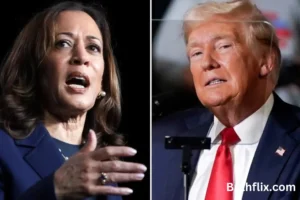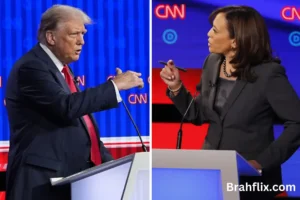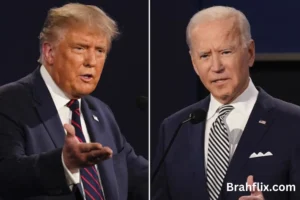Introduction
As election season heats up, one question many voters ask is, “What time is the debate tonight?” Political debates serve as critical platforms for candidates to articulate their policies, challenge their opponents, and connect with the electorate. Understanding the timing and format of these debates can significantly enhance your engagement as a voter.
In this comprehensive guide, we will explore not only the timing of the upcoming debates but also delve into their significance, formats, historical context, and tips on how to effectively engage with the debate content.
Key Takeaways
- Timing Matters: Knowing the schedule helps you prepare for meaningful engagement.
- Debate Formats: Understanding various formats enhances your comprehension of candidates’ positions.
- Historical Context: Political debates have evolved over time, shaping electoral outcomes.
- Engagement Tips: Learn how to analyze debates critically and participate in discussions.
Understanding Debate Timing
When asking, “What time is the debate tonight?”, the answer can vary depending on your location and the network broadcasting the event. Typically, presidential debates are scheduled in the evening, often starting around 8:00 PM to 9:00 PM Eastern Time.
Factors Influencing Debate Timing
- Network Scheduling: Major networks like CNN, NBC, and Fox often broadcast debates and have their own scheduling preferences.
- Time Zones: If you’re in a different time zone, be sure to adjust accordingly.
- Election Cycle: The timing may differ in primary versus general election cycles.
Example of a Debate Schedule
| Date | Time (ET) | Candidates | Network |
|---|---|---|---|
| Oct 5, 2024 | 8:00 PM | Candidate A vs. Candidate B | CNN |
| Oct 12, 2024 | 9:00 PM | Candidate C vs. Candidate D | NBC |
| Oct 19, 2024 | 8:30 PM | Candidate A vs. Candidate C | ABC |
Understanding the schedule ensures you won’t miss out on key moments that could influence your voting decisions.
The Importance of Political Debates
Political debates are not just for show; they play a vital role in the electoral process.
Why Debates Matter
- Voter Information: They provide a platform for candidates to share their policies and respond to questions from voters.
- Accountability: Debates hold candidates accountable for their past actions and statements.
- Public Engagement: They stimulate discussion and engagement among voters, encouraging civic participation.
Historical Impact of Debates
Historically, debates have influenced election outcomes. The 1960 Kennedy-Nixon debate is often cited as a turning point that showcased the importance of media presence in politics. Kennedy’s poised demeanor contrasted sharply with Nixon’s visible discomfort, significantly swaying public opinion.
Statistics on Debate Influence
- According to a Pew Research Center study, about 69% of voters say debates help them understand candidates’ positions better.
- Another survey indicated that 57% of undecided voters were influenced by what they saw during debates.
Common Formats of Political Debates
Understanding the different formats of debates can enhance your comprehension of how candidates present their arguments.
Types of Debate Formats
- Town Hall Meetings: In these formats, candidates answer questions from the audience, offering a more personal touch.
- Moderated Debates: A moderator poses questions to candidates, who respond in a timed format.
- Panel Debates: A panel of journalists or experts asks questions, creating a more dynamic discussion.
Benefits of Each Format
- Town Hall Meetings: Foster direct interaction and allow for more spontaneous responses.
- Moderated Debates: Ensure that all candidates have equal opportunity to respond to questions.
- Panel Debates: Provide diverse perspectives and can lead to more in-depth discussions.
Example Debate Formats
| Format | Description | Advantages |
|---|---|---|
| Town Hall | Direct audience questions | Personal connection |
| Moderated | Timed questions from a single moderator | Equal time for all candidates |
| Panel | Questions from a diverse panel | Broader perspectives |
How to Prepare for Watching a Debate
Being well-prepared can enhance your viewing experience significantly. Here are some tips for effective engagement:
Tips for Effective Viewing
- Set a Reminder: Note the time and channel to avoid missing it.
- Prepare Questions: Think of questions you want the candidates to address.
- Engage with Others: Consider watching with friends or family to discuss perspectives afterward.
Tools for Engagement
- Social Media: Use platforms like Twitter to follow live reactions and analyses.
- News Apps: Many news outlets provide live updates and fact-checking during debates.
What to Watch For
- Body Language: Pay attention to non-verbal cues.
- Policy Proposals: Note specific policies that interest you.
- Candidate Interactions: Watch how candidates respond to each other, as this can reveal their campaign strategies.
The Role of Moderators in Debates
Moderators play a crucial role in ensuring debates run smoothly and fairly.
Responsibilities of Moderators
- Question Selection: They curate questions that address pressing issues.
- Time Management: Moderators ensure candidates adhere to time limits.
- Fact-Checking: Some moderators may provide immediate fact-checking to maintain accuracy.
Importance of Neutrality
A good moderator remains neutral, facilitating discussion without showing favoritism. This is critical for public trust in the debate process.
Notable Moderators in History
- Jim Lehrer: Known for moderating numerous presidential debates, he emphasized fairness and clarity.
- Chris Wallace: Famous for his tough questioning style, he has moderated debates across multiple election cycles.
The Evolution of Political Debates
Political debates have transformed over the decades, reflecting changes in media and voter expectations.
Historical Milestones
- First Televised Debate (1960): The Kennedy-Nixon debate marked a pivotal moment in how debates are conducted.
- Increased Accessibility (1980s-Present): Debates have become more accessible through the internet and social media platforms.
Current Trends in Debates
- Virtual Debates: The rise of technology has allowed for remote participation, especially noted during the COVID-19 pandemic.
- Increased Fact-Checking: With the proliferation of misinformation, fact-checking during and after debates has become more critical.
Future of Political Debates
As technology evolves, the format and reach of political debates are likely to continue changing. Virtual reality and augmented reality might soon allow for immersive debate experiences.
How to Analyze a Debate Effectively
Watching a debate is not just about observing; it’s about analyzing what you see. Here are steps to enhance your analytical skills:
Steps for Analysis
- Take Notes: Write down key points made by each candidate.
- Evaluate Responses: Consider how well candidates answered questions. Were they direct and informative?
- Watch for Consistency: Compare their current statements with past positions.
Discussion Points After the Debate
- Who won the debate? Use criteria like clarity, persuasion, and factual accuracy.
- What policies resonated with you? Identify which proposals align with your values.
- How did candidates handle criticism? Analyze their responses to opponents’ attacks.
Engaging with Others
After the debate, discuss your thoughts with friends or on social media. Different perspectives can enrich your understanding of the candidates and their policies.
FAQs About Political Debates
1. What time is the debate tonight?
The time for the debate varies by date and network, often starting between 8:00 PM and 9:00 PM ET. Check local listings for specifics.
2. How can I watch the debate?
Debates are typically broadcast on major news networks and can also be streamed online.
3. What should I look for during a debate?
Focus on candidates’ policy proposals, their responses to questions, and their interaction with each other.
4. How do debates influence public opinion?
Debates provide a platform for candidates to directly communicate their positions, which can sway undecided voters.
5. Are there fact-checkers during the debate?
Yes, many news organizations provide real-time fact-checking to help viewers assess candidates’ claims.
Conclusion
Understanding “what time is the debate tonight” is just the beginning of your journey into the world of political debates. By exploring the significance, formats, and analysis techniques, you can become a more informed and engaged voter.
As we approach the next election, consider how debates influence your perceptions of candidates and policies. Have you found the debates informative? What aspects do you think matter most?
For more insights and discussions about the political landscape, don’t forget to check out our other blogs!